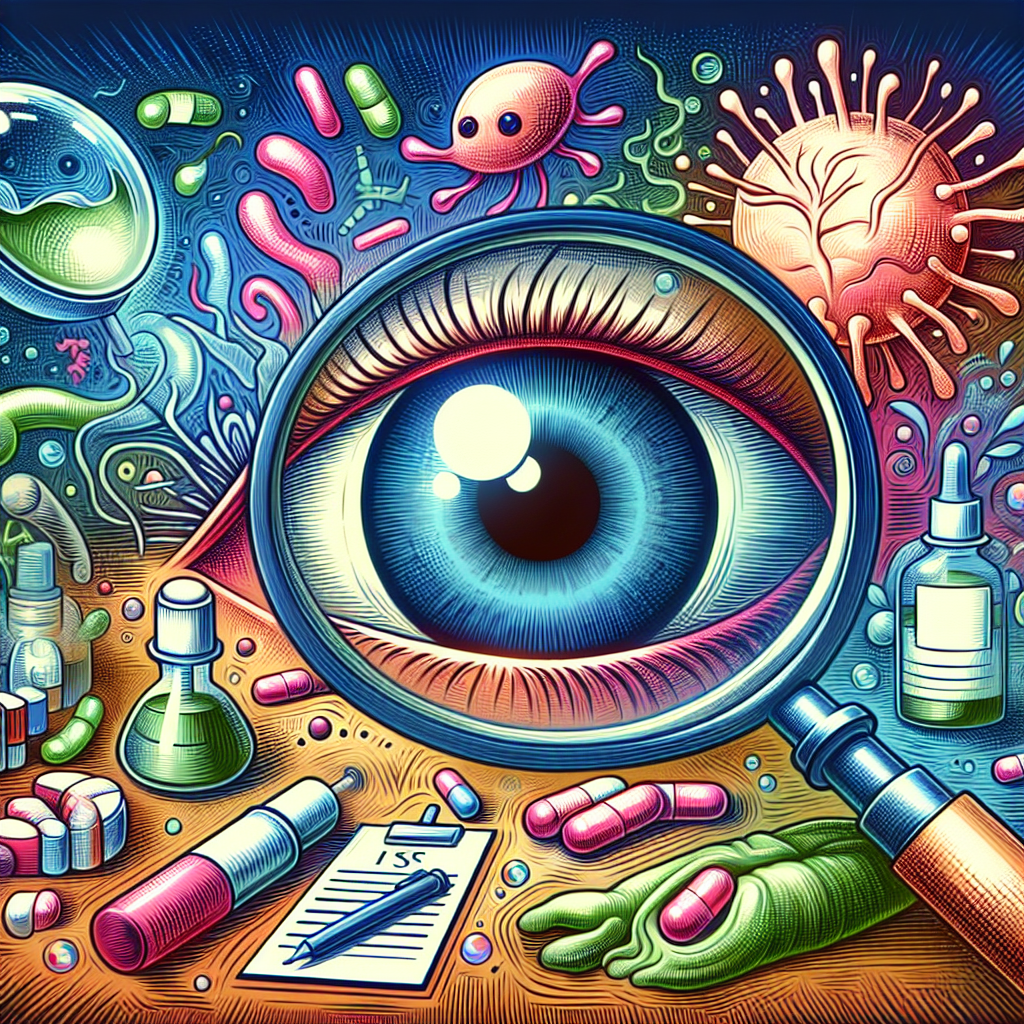Introduction
Our eyes are not just windows to our soul; they are also gateways to the world around us. When an eye infection strikes, it can feel like a sudden storm clouding the view of a once-clear horizon. In the United States, millions experience eye infections every year, wondering if there’s a lighthouse guiding them back to clarity. But fear not, for this guide will illuminate the path to restoring your vision.
- Understanding Eye Infections
- Common Symptoms
- Treatment Options
- Prevention Tips
- When to Seek Urgent Care
- Conclusion
Understanding Eye Infections
Eye infections can be as varied as the colors of the rainbow. From bacterial and viral infections to fungal and allergic reactions, each type casts its own shadow on our vision. Knowing the nature of the beast is the first step in taming it.
Common Types of Eye Infections
- Conjunctivitis: Often referred to as “pink eye,” this infection inflames the lining of the eyelid and eye surface.
- Styes: These painful lumps arise from blocked oil glands at the edge of the eyelid.
- Keratitis: An inflammation of the cornea that can stem from infections or injuries.
Common Symptoms
An eye infection is like an unwelcome guest—its presence is usually felt before it’s seen. Watch out for these telltale signs:
- Redness and swelling
- Itching or burning sensation
- Discharge or tearing
- Sensitivity to light
- Blurry vision
Treatment Options
The path to recovery is paved with various treatment options. Depending on the type and severity of the infection, treatments can range from home remedies to medical interventions.
Home Remedies
- Warm compresses: Applying a warm, moist cloth can help alleviate discomfort and promote drainage in cases like styes.
- Proper hygiene: Regularly washing hands and avoiding touching the eyes can prevent further irritation.
Medical Treatments
For more severe infections, a professional touch may be necessary. Consider consulting a healthcare provider for:
- Antibiotic or antiviral medication: Prescribed by doctors to combat bacterial or viral infections.
- Eye drops and ointments: Used to reduce inflammation and speed up healing.
If you’re experiencing persistent symptoms or complications, don’t hesitate to explore comprehensive eye infections and stye treatment services for clearer vision offered by professionals.
Prevention Tips
An ounce of prevention is worth a pound of cure. Safeguard your sight with these preventive measures:
- Avoid sharing personal items like towels or eyewear.
- Wear protective eyewear in dusty or hazardous environments.
- Maintain good contact lens hygiene.
When to Seek Urgent Care
If your eye infection feels like a raging storm rather than a passing drizzle, it might be time to seek shelter in professional care. Conditions like severe pain, vision loss, or symptoms extending beyond a few days warrant immediate attention. Familiarize yourself with available urgent care services to ensure you receive timely intervention.
Conclusion
An eye infection can blur the lines between comfort and distress. However, with knowledge and proactive treatment, you can navigate through the haze and return to a life where your eyes are crystal-clear windows once again. Remember, whether it’s understanding the signs or knowing when to seek help, every step you take brings you closer to brighter days.
Key Takeaways
- Identify symptoms early for prompt treatment.
- Explore both home remedies and medical treatments.
- Prevent infections through good hygiene practices.
- Seek urgent care if symptoms persist or worsen.
FAQs
Can an eye infection resolve without treatment?
While some mild infections may improve on their own, seeking professional advice ensures proper care and prevents complications.
Is it safe to wear contact lenses during an eye infection?
No, wearing contact lenses during an infection can aggravate symptoms and delay healing. It’s best to switch to glasses until recovery is complete.
How long does it take for an eye infection to heal?
The duration varies depending on the type and severity of the infection. Mild cases may resolve within a few days, while more serious infections could take weeks.
For more detailed insights on related health issues, such as dealing with infections from cuts or learning about why hydrogen peroxide fizzes in the ear, explore our informative articles such as “Will an infected cut take care of itself?” or “Why does hydrogen peroxide fizz in the ear?”. These resources can provide you with additional knowledge on how to handle infections effectively.
For authoritative information on eye health, consider visiting resources like the Centers for Disease Control and Prevention Vision Health page. Additionally, healthcare providers often recommend staying updated with guidelines from reputable sources like the National Eye Institute.











